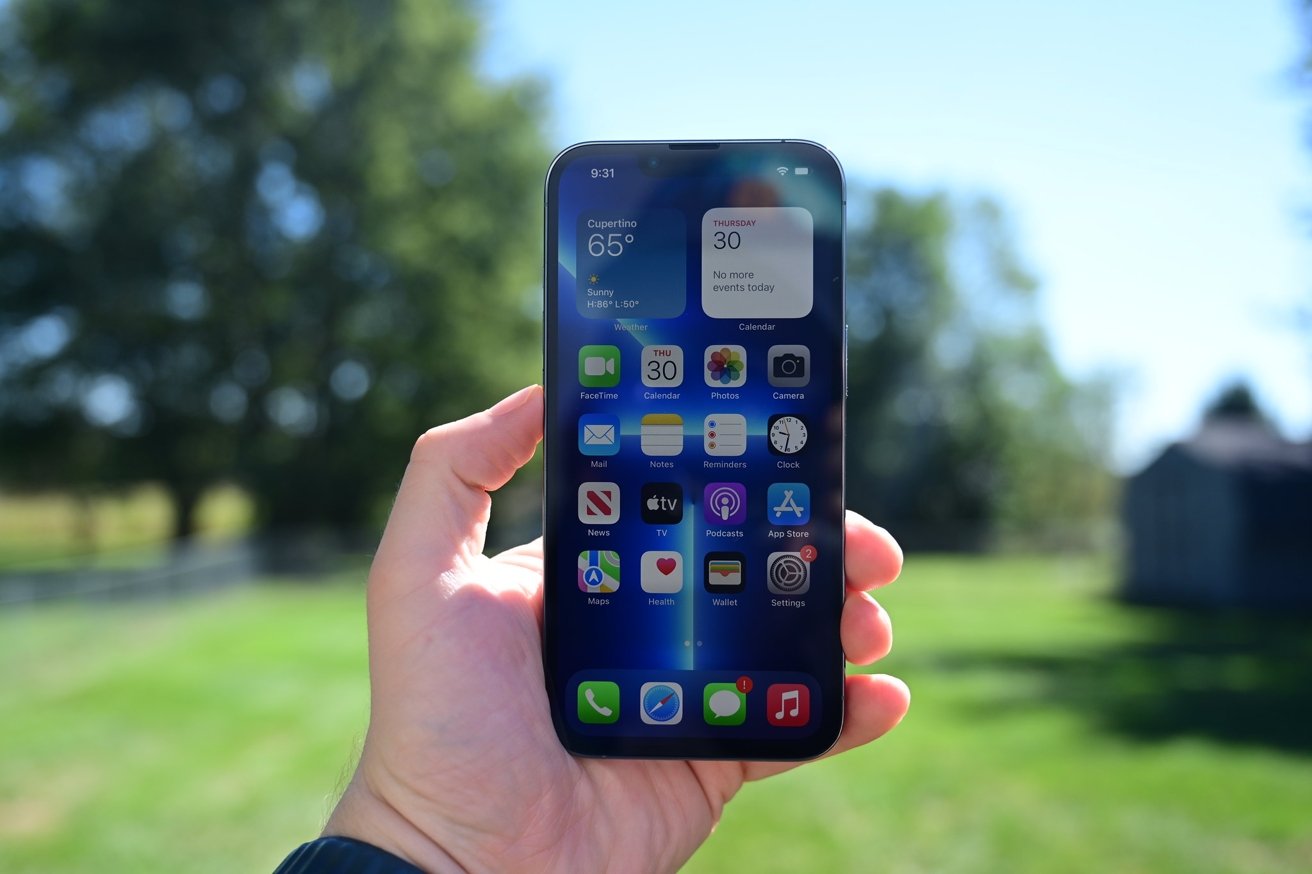iOS 15 adoption rate appears to be lagging behind past updates
Apple's iOS 15 update is now installed on 72% of iPhone models from the last four years, lagging behind the adoption rate of iOS 14 at this point after release.

iOS 15 on an iPhone 13 Pro
According to update adoption statistics posted to Apple's website, 26% of devices introduced since 2018 are running iOS 14, while 72% have iOS 15 installed and 2% are on an older version of iOS.
Across all devices, not just those released in the last four years, iOS 15 is installed on 63%, while 30% are running iOS 14 and 7% are running an older software update.
For Apple's iPad, iPadOS adoption is lower. The numbers indicate that 57% of iPads introduced in the last four years are running iPadOS 15, while 39% are running the previous version and 4% are running another iPad-specific update.
As far as all iPad models that Apple is tracking, 49% have iPadOS 15 installed, with 37% running iPadOS 14 and 14% running an earlier version.
The adoption rates are lower than Apple's previous iOS 14 and iPadOS 14. As of December 2020, iOS 14 was installed on 81% of compatible devices released in the four years prior. Before iOS 14, iOS 13 saw a 77% adoption rate at the same point after its release.
It's likely that the reduced adoption rates are because of a change in Apple's update stance. The company is no longer forcing users to install the latest operating system version to gain important security updates. Apple's set of iOS 15 features -- including the controversial-but-delayed CSAM detection system -- may also be playing a part.
Read on AppleInsider

iOS 15 on an iPhone 13 Pro
According to update adoption statistics posted to Apple's website, 26% of devices introduced since 2018 are running iOS 14, while 72% have iOS 15 installed and 2% are on an older version of iOS.
Across all devices, not just those released in the last four years, iOS 15 is installed on 63%, while 30% are running iOS 14 and 7% are running an older software update.
For Apple's iPad, iPadOS adoption is lower. The numbers indicate that 57% of iPads introduced in the last four years are running iPadOS 15, while 39% are running the previous version and 4% are running another iPad-specific update.
As far as all iPad models that Apple is tracking, 49% have iPadOS 15 installed, with 37% running iPadOS 14 and 14% running an earlier version.
The adoption rates are lower than Apple's previous iOS 14 and iPadOS 14. As of December 2020, iOS 14 was installed on 81% of compatible devices released in the four years prior. Before iOS 14, iOS 13 saw a 77% adoption rate at the same point after its release.
It's likely that the reduced adoption rates are because of a change in Apple's update stance. The company is no longer forcing users to install the latest operating system version to gain important security updates. Apple's set of iOS 15 features -- including the controversial-but-delayed CSAM detection system -- may also be playing a part.
Read on AppleInsider

Comments
99.9% off the reason.
“Apple's set of iOS 15 features -- including the controversial-but-delayed CSAM detection system -- may also be playing a part.”
0.1% of the reason.
If I had child rape photos and didn’t want them to report them to police, I’d disable iCloud Photos.
I’m much more interested in the E2E encryption I’ll get when this eventually rolls out. That offers me value. Worrying about child rape porn? Not a concern.
Anyway you sound butthurt and hyper sensitive to Apple product fans on an…Apple site. Show us where on the doll Apple hurt you.
I've found iOS 15 to be pretty much fine, but I have little doubt that others experiences may have varied.
They lost integrity, they lost credibility and consumer faith in their supposed commitment to Privacy and their Mantra of ‘Privacy is Paramount’… A commitment most of Apple customers were willing to pay a premium for.. ( one stupid decision and all of that is out the window)
And to this day they have not officially backed off from implementing it… continuing with the damage rather coming out and openly admitting to the blunder and getting their Full PR force behind damage control! and hopefully damage repair!?
I for one, (and seems many as well) will not update until Apple openly and officially abandons their shameless attempt to install Mass Surveillance code in MY/OUR devices!
The person making a claim is usually the one required to provide the proof, so take it up with the author.
The fact that you say you've had zero issues with a "household of devices" means either you don't use them, or it's a lie. Even on a good day with a good OS, one or more of your devices will have an issue. Nothing is perfect, so to say you've had zero issues can't not true. My iPhone, Apple Watch, 5 Apple TV's, AirPod Pro's, a MacBook Pro M1 and a Mac Mini M1 -- none of them are "zero issues". iPhone is riddled with issues along with issues on AW.
What is the point in E2E encryption if it can be bypassed on the device by the manufacturer at the will of a government?